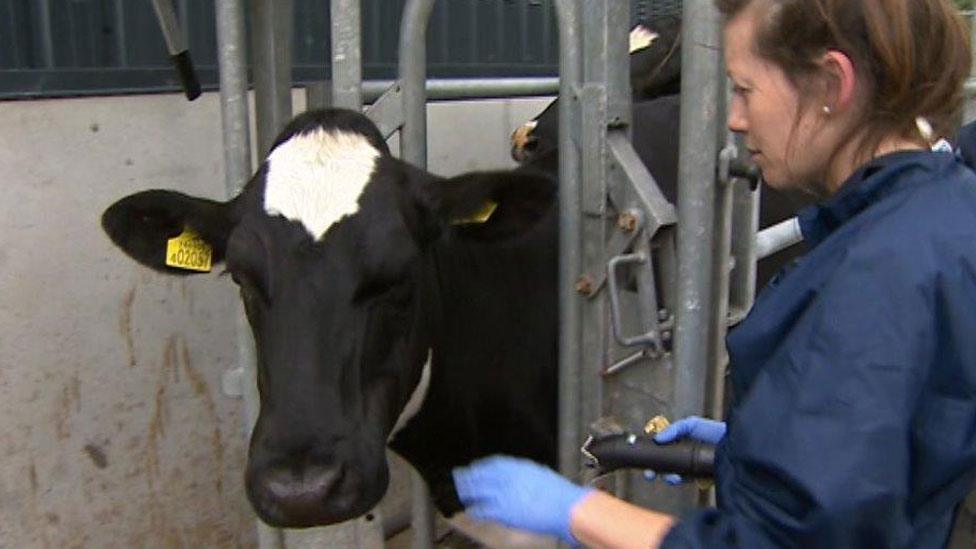Bovine TB: Watching cows being shot is 'destroying' for farmers
- Published
Abi Reader has 200 cows on her dairy farm - and the loss of any to TB is felt deeply
When three of Abi Reader's pregnant cows tested positive for bovine TB, they had to be shot on the farm, as they could not travel to an abattoir.
"I can remember he held the gun to [the cow's] head and she reached out to sniff the end of it," Ms Reader said.
"It fired and she dropped to the ground. To watch that so graphically… you feel like you've failed the herd."
Lethal injections will now be funded by ministers so farmers can avoid witnessing gun slaughter.
They will be able to request the alternative to shooting for cows deemed unfit to travel, either because they are heavily in calf, have recently calved, or for welfare reasons.
Latest figures show 11,977 cattle in Wales were slaughtered due to bovine TB in the 12 months to April 2019 - a 19% increase on the previous year, and the highest number of slaughtered cattle in 10 years.
Ms Reader knows too well the horror of seeing infected animals shot.
She has a herd of 200 cows in Wenvoe in the Vale of Glamorgan, supplying milk to one of the big supermarkets, but recently received the "horrendous" news that 10 had tested positive for bovine TB.
"It's spread by touch, so it could be everywhere and I feel a bit helpless," she said.
"I know farmers who have lost hundreds of cows and seen hundreds shot - and to see them shot again and again and again and to know that it's going to keep coming back and repeating on you is destroying."
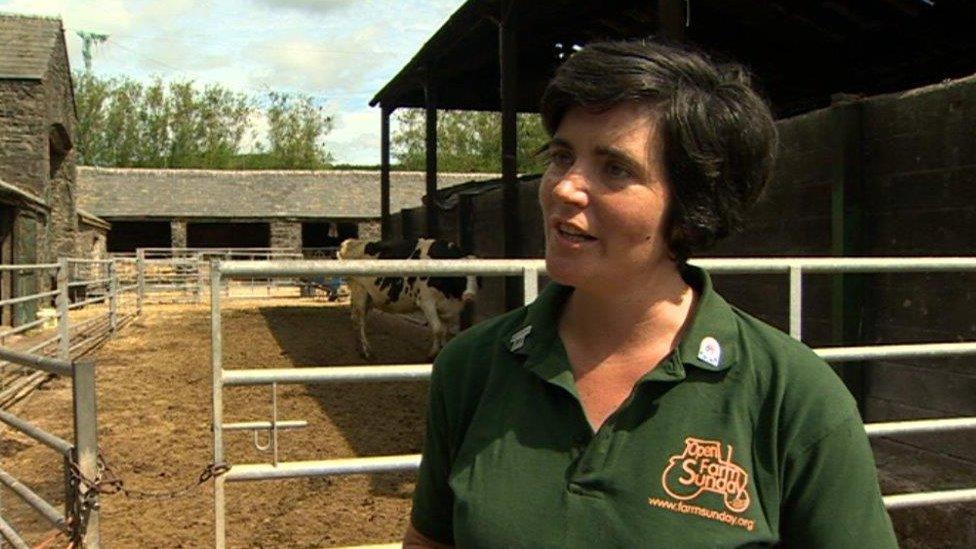
Dairy farmer Abi Reader feels "helpless" as she looks at her herd wondering who is next
Dairy farmer Ms Reader, who is vice chair of NFU Cymru's Milkboard, believes the focus needs to be on eradicating TB, "to stop farmers suffering".
"It's sometimes very hard on the farm to understand if anyone is doing anything other than sending out words such as 'oh we'll look at better ways of killing them'. It doesn't help when you're stood here living with it," she added.
Farmers are compensated for cattle killed, but often, as in Ms Reader's case, it means an end to bloodlines bred over many decades.
They also face strict restrictions on moving, buying or selling animals - and have less milk or beef to sell.
The number of cattle killed in Wales as a result of bovine TB has risen sharply in recent years, which the Welsh Government insisted is down to heightened surveillance as it tries to stamp out the disease.

Since 2009, it said there has been a 40% reduction in new cases. The latest figures show 722 new herd incidents in Wales - cases of TB in herds that were previously clear of the disease - a 7% decrease on the previous year and down from 1,314 in April 2009.
Rural affairs minister Lesley Griffiths announced in April that she had asked officials to look at ways of reducing instances where cattle had to be shot on farm, which can be "particularly distressing to witness".
The Welsh Government added: "Support is available to farmers and farming families in Wales impacted by TB breakdowns through the Cymorth TB programme."
What is the reaction?
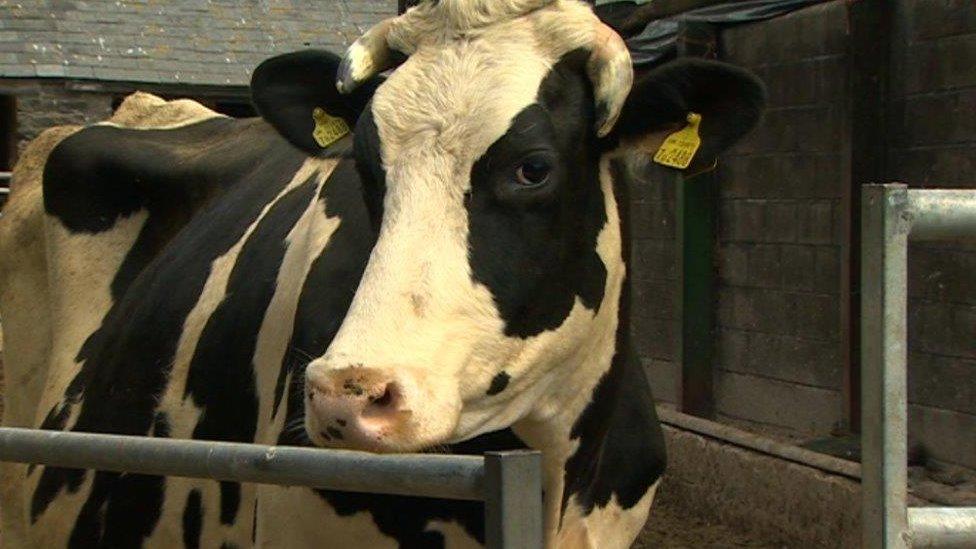
The emotional toll of bovine TB will be discussed at annual Royal Welsh Agricultural Show in Llanelwedd next week
NFU Cymru President John Davies said: "Unfortunately bovine TB will keep negatively impacting cattle and farming families in Wales until this horrendous disease is brought fully under control."
The Farmers' Union of Wales called for "robust, Welsh-specific information on the financial impact of a TB breakdown and the subsequent mental health impacts on farmers".
Welsh Conservative rural affairs spokesman, Andrew RT Davies AM, said: "At the best of times, farming can often prove a lonely business and has one of the highest suicide rates of any profession in this country."
Plaid Cymru's agriculture spokesman Llyr Gruffydd said there was "utter frustration" among farmers that the Welsh Government was not using all the tools available to tackle the problem.
'A hugely significant discovery'

As cattle farmers deal with the fall out of the disease, scientists at the Bovine TB Centre of Excellence at Aberystwyth University have announced what they claimed could be a hugely significant discovery in the fight against the disease.
Working with an international team of researchers, they have developed a test which can - for the first time - tell the difference between a vaccinated animal and one which has the infection.
It could mean that cattle can be vaccinated against TB in future, though it will be several years before the test is ready to be deployed.
Professor Glyn Hewinson, who heads up the European and Welsh Government-funded centre, said: "The hope is that by bringing more evidence and science to the problem we can eradicate it."
- Published17 July 2019
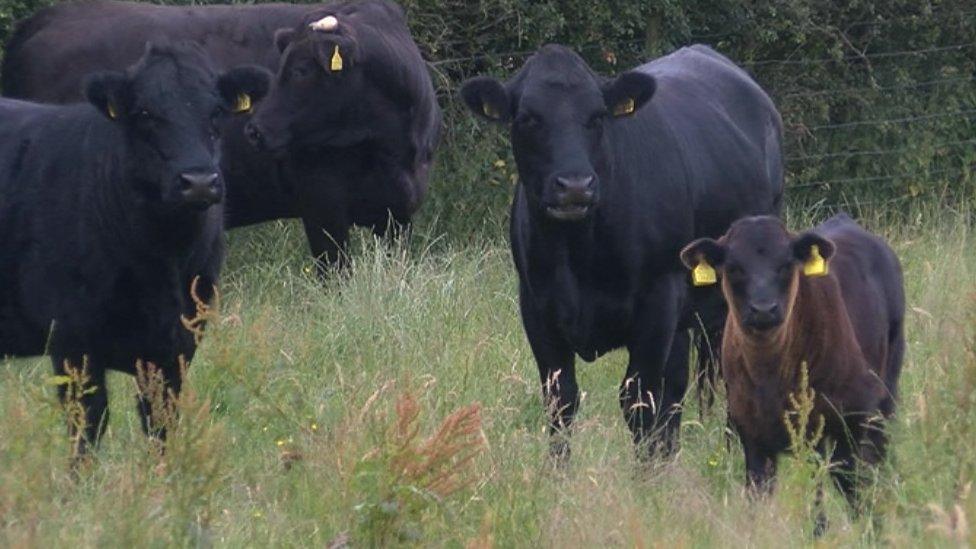
- Published17 October 2016
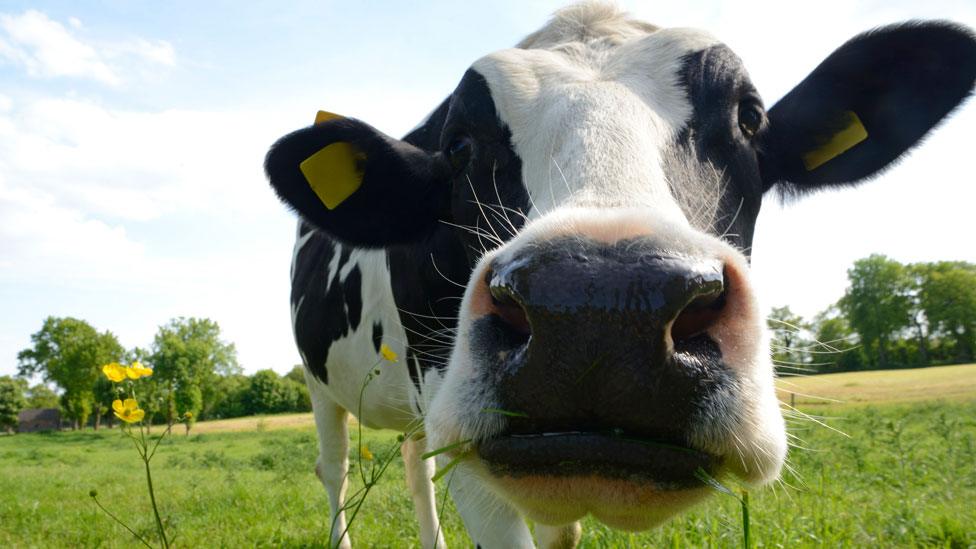
- Published30 April 2019
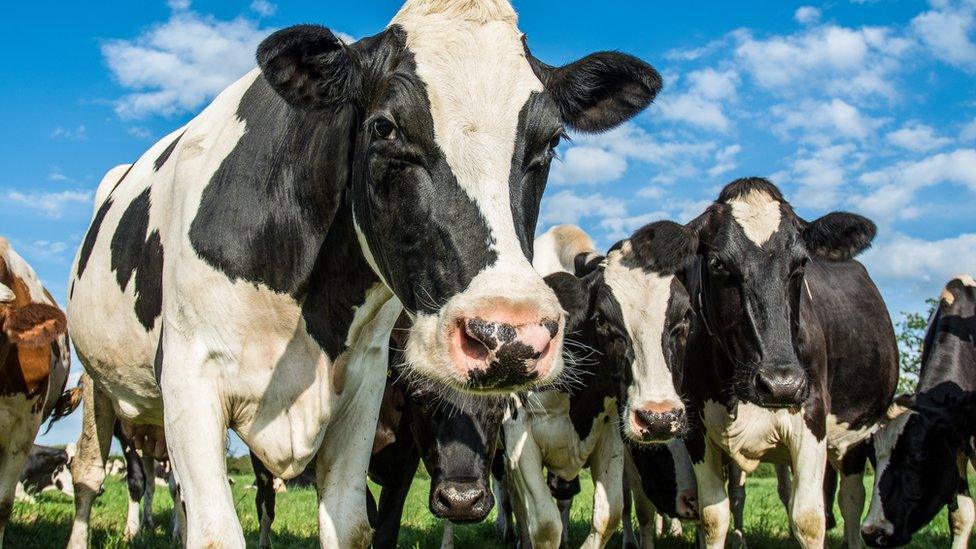
- Published20 June 2017
